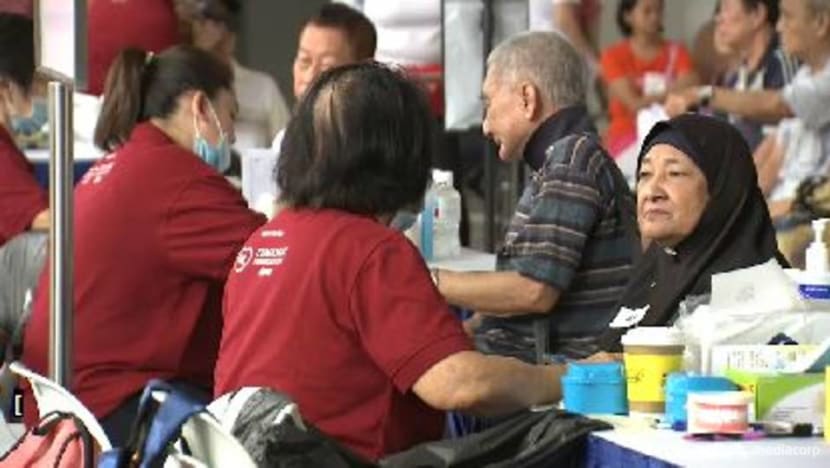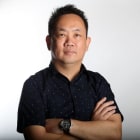When someone dies alone in Singapore, this is what happens
With more and more Singaporeans living by themselves, could they be at risk of dying without anyone knowing? Can anything be done about it? Talking Point investigates.
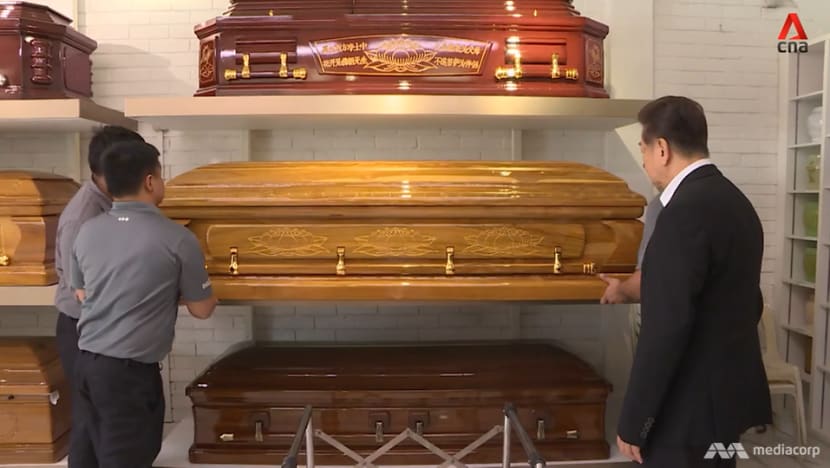
Each year, up to 75 bodies go unclaimed in Singapore.

This audio is generated by an AI tool.
SINGAPORE: On Jan 9, 2018, the decomposed body of Gerald Fu was found slumped over his couch.
The 65-year-old had lain undiscovered until a next-door neighbour, who had not seen the deceased for a week, realised something was amiss. He was also not answering his phone.
The neighbour alerted Fu’s family, who called the police and a locksmith to gain access to the Marine Parade flat.
“They went in and found his body on the couch, half on the floor. The cause of his death was heart failure. I never thought that something like that would happen to him,” recounted Fu’s nephew Glen.
The former inflight supervisor had travelled the world over a 30-year career, and by the time Fu reached his mid-50s, he decided it was time to give jet-setting a rest.
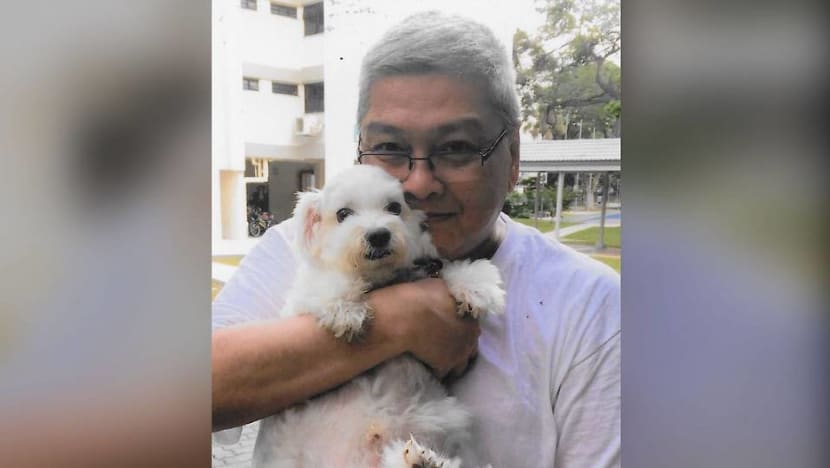
Fu’s sudden death has spurred Glen to speak about his uncle’s life, but without disclosing his last name because of the backlash the family had faced.
“When my uncle’s death was reported online, people made very nasty comments: ... ‘How could you let a loved one die alone? What sort of family members let their loved one die alone?’” cited the 48-year-old.
“It wasn’t that we let him die alone. He wanted that life. He wanted to be independent (and) alone. So it was quite upsetting to hear all these things from people who didn’t even know him.”
As Singapore’s population ages, and more seniors live alone, by choice or otherwise, does this necessarily mean an increased risk of lonely deaths? Talking Point finds out what happens when people die alone and what can be done about it.
WATCH: Why do we have lonely deaths? (23:04)
LIVING ALONE, OR LONELY LIFE?
To Glen, the sad thing about his uncle’s death and those who have died at home alone is that “there was no one there with them”, he said in a previous CNA interview.
“As a relative, you feel as if your hands were tied — you couldn’t do anything about it.”
The thing is, there is a trend towards one-person households. In 2000, they made up 8.2 per cent of resident households in Singapore. That proportion is now 15 per cent, or 208,000 households.
While the majority are not the elderly, the Department of Statistics estimates that 83,000 elderly persons will be living alone by 2030, compared with the 47,000 seniors aged 65 and above in 2016.
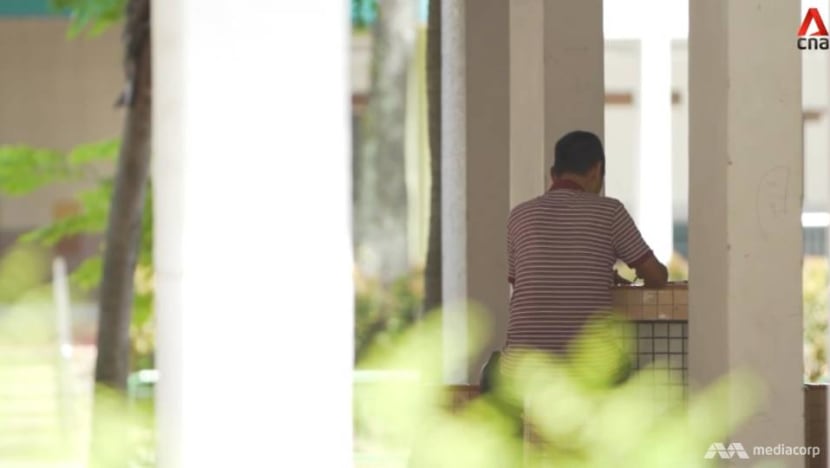
Jean Yeung, the founding director of the National University of Singapore’s Centre for Family and Population Research, has studied the evolution of family dynamics in Asia over the past 30 years, and has noticed the rise in single households.
In the past, people lived alone mostly because of a spouse’s death, or they did not have other family members, whereas the reasons now are “a lot more diverse”, said the professor.
Some, for example, live alone because they or their family members have migrated.
“Also, people older than 65 (who) are healthy, and they have the means ... might choose to live alone, even though they have other family members who can live with them,” she added.
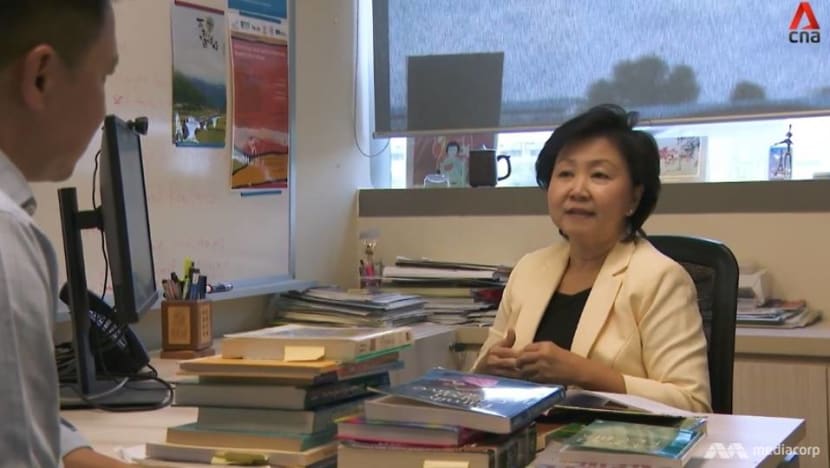
This does not mean that living alone will cause one to die sooner, she said. But if they become isolated, it is likely that more people could die in future without anyone knowing.
“Becoming depressed (and) lonely,” she added, “are the big risk factors that could cause these sorts of things”.
Angelique Chan, the executive director of the Duke-NUS Medical School’s Centre for Ageing Research and Education, said the number of people dying alone may begin to rise just because “the sheer number of people living alone is increasing”.
She pointed out that the sense of community in Singapore has declined because of the living environment and urban design.
“We basically live behind closed doors most of the time. So it’s very hard to get to know your neighbours,” said the associate professor. “We don't know each other, we don't talk to each other.”
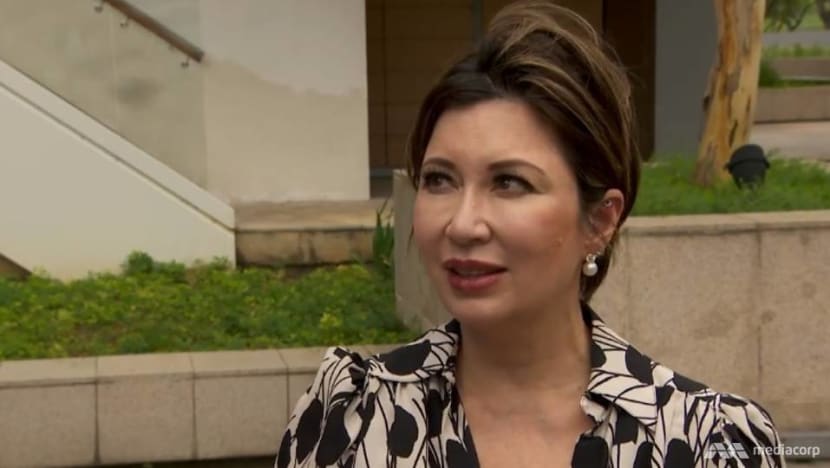
Having studied issues related to the elderly for the past 23 years, she has noted an increase in the proportion of people who report having no one to rely on when they need help.
In 2009, about a quarter of people aged above 60 said they did not have a friend or a relative whom they could call on for help. This number doubled to 50 per cent in a 2016 study, she cited.
But these people are not necessarily living alone — they could be living with their family, yet feel lonely.
“With all our efforts in terms of engaging more neighbours and … reaching out, for the average Singaporean above the age of 60, it doesn't seem to be working,” she said.
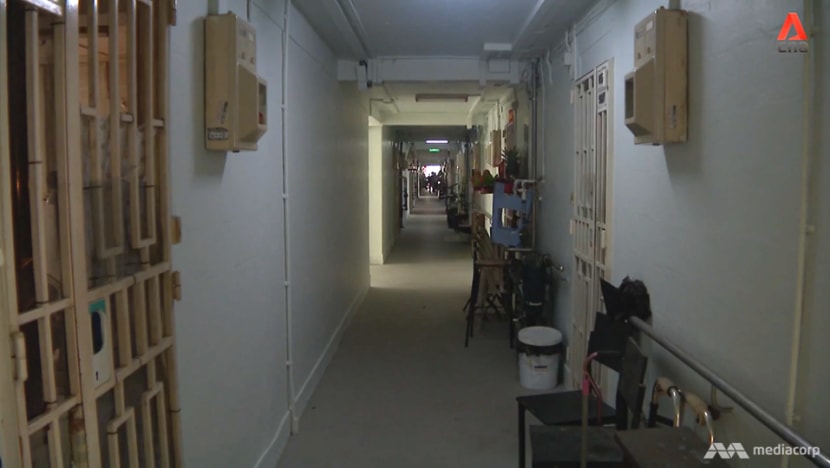
UNCLAIMED BODIES
When it comes to the number of people dying alone and unnoticed for days, however, there are no official statistics.
For its part, decontamination firm Lumiair sees 20 to 30 such cases annually, and at least 90 per cent of them lived on their own.
The firm cleans the homes of the recently deceased and has offered this service since 2018. This specialised cleaning is usually required for a crime scene, a suicide case or, in the case of dying alone, for decomposition.
The staff put on decontamination suits to protect themselves from coming into contact with bacterial pathogens. They also wear respirator masks so that they do not breathe in any harmful bacteria or viruses, said Lumiair director Andrew Yap.
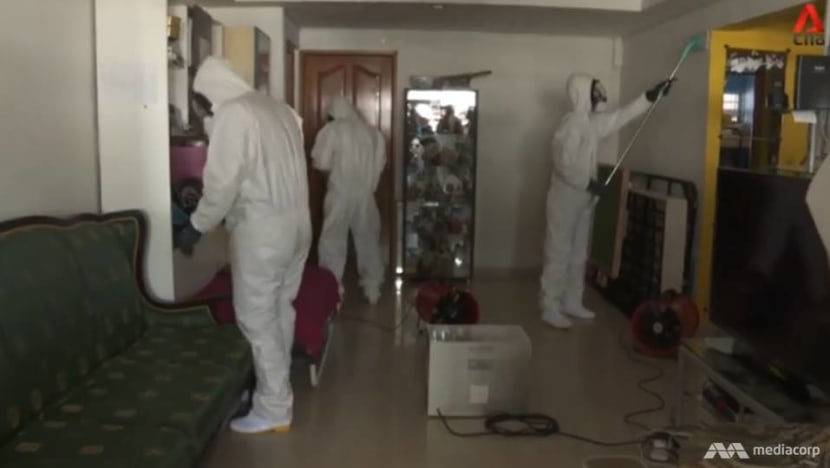
And they use an ultraviolet machine to “sterilise the entire place”, especially “close to where the body (had been)”.
The thought of dying like that, without anyone knowing, can be scary to some. But there are people whose next of kin cannot immediately be found and remain hard to find.
Last year, the police issued 51 appeals for next of kin, with most of the deceased above the age of 65.
READ: When all a patient has at death’s door is one last hope, she steps in
Principal medical social worker Samuel Neo from Tan Tock Seng Hospital put out about 25 appeals of his own.
He sometimes has to play sleuth to track down people’s families, and he is successful close to 90 per cent of the time. But locating them is only the first step.
“Some are willing to come forth. But some, maybe due to past hurts or the bad relationship that they had, … choose not to,” he said.
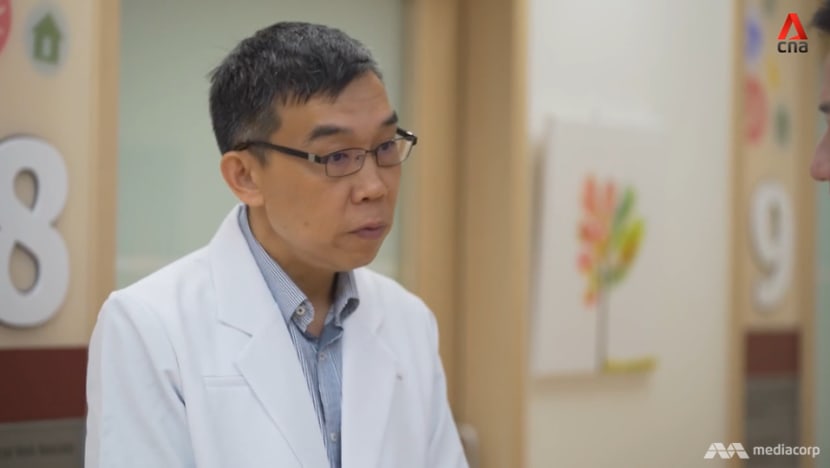
The Health Sciences Authority handles up to 75 unclaimed bodies a year. Most of these bodies are later cremated, while some are sent to medical schools and hospitals for education and research.
Undertaker Roland Tay from Direct Funeral Services said he has taken on more than 500 pro bono cases for unclaimed bodies in the past three decades — around 30 to 40 such cases every year now.
READ: The 80-year-old who cares for the lonely elderly poor, in life and death
Without any next of kin to refer to, one of the challenges is that he sometimes does not know the religion of the deceased and the kind of funeral rites to conduct.
He usually tries to track down the deceased’s neighbours or friends to find out more, but failing that, he would do the rites “the free-thinker way”, he said.
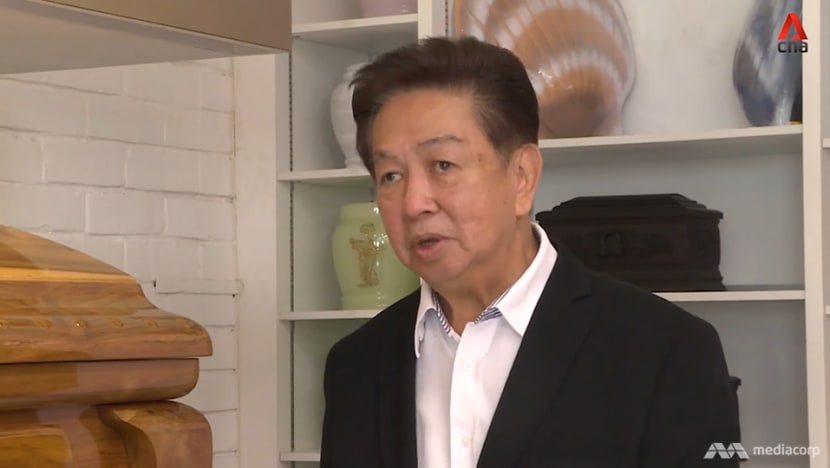
ELDERLY MONITORING SYSTEMS
With an ageing society and the reality that more people will live on their own, there are some high-tech solutions in Singapore to monitor the safety of these seniors.
The Housing and Development Board (HDB) first introduced a monitoring and alert system in 2014 in several estates, such as Clementi, Woodlands and Yishun, as part of a trial.
One of the companies involved in a subsequent trial in Yuhua estate is TCAM Technology. It introduced a set of motion and door sensors that could learn the seniors’ movements.
For example, if an elderly person who wakes up regularly at 7 a.m. does not do so, the sensor would pick that up, said company founder Tan Shuang Maan.
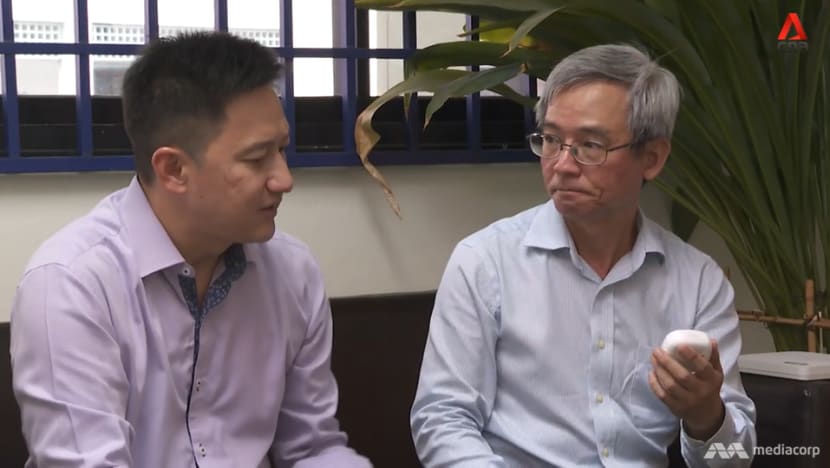
“(The system) would try to alert their children or the neighbour or the next of kin who are pre-programmed in the system,” he said. “This app may also be sent to a care service team, and a responder may come.”
The response during the trial in Yuhua was good, but over time, the number of subscribers has dropped until a “very small group” is left now, he added. “The elderly sometimes said they didn’t want to be monitored.”
If some people feel uncomfortable being monitored via technology, then an assisted living facility such as the St Bernadette Lifestyle Village may be the answer.
This facility allows seniors to have a space of their own while still living within a community. There is also a nurse on hand 24/7 should the seniors run into trouble.
Family physician Belinda Wee, who co-founded the facility in 2015, described it as an “intentional community”, which could alleviate one’s loneliness. “It provides social interaction. Hopefully you won’t die alone,” she said.
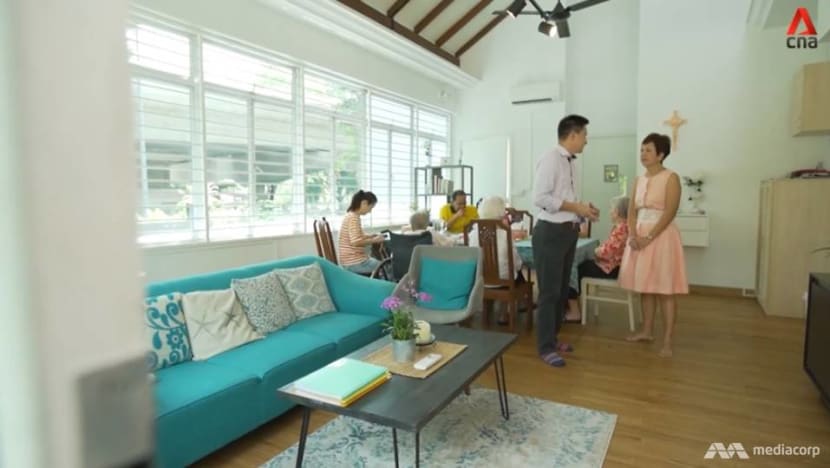
She thinks such a set-up is a model for the future — though it does not come cheap, costing up to S$2,000 a month.
Then in 2018, the HDB opened Kampung Admiralty, Singapore's first public integrated development, to encourage active living among seniors. It combines housing for them with a range of healthcare, social and commercial facilities.
It also has an Active Ageing Hub, which offers care services, day rehabilitation as well as community and volunteer activities.
And the flats are designed with the safety of the seniors in mind. If residents need help, for example, they can activate one of several alarms in their home to alert their neighbours.
Allowing seniors to age in place is the way to go, believes Wee.
“If we repurpose their properties or existing buildings or even public housing, the care can be organised, and seniors who are asset-rich and cash-poor won’t have to worry about their care,” she said.
Watch this episode of Talking Point here. New episodes on Channel 5 every Thursday at 9.30pm.
